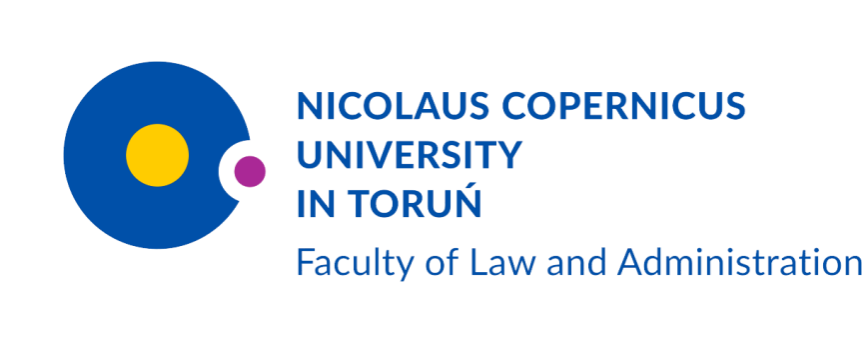What is law?
The aim of the law course at the Faculty of Law and Administration of the Nicolaus Copernicus University in Toruń is to give the graduate the requisite knowledge of legal culture and a repertoire of basic concepts from various law disciplines to the extent that they can freely use legal norms as a tool for regulating social relations, regardless of the pace of change in specific provisions.
In order to achieve this goal, it is vital that the course is based on a solid foundation of theoretical and legal disciplines and to expand the core modules with fundamental sections of law such as constitutional, administrative, civil, and criminal law, as well as numerous specific legal disciplines including commercial and banking law, bills of exchange and checks, criminology, victimology, forensics, public and private international law, maritime law, labour law, or insurance law.
Why is it worth studying law at Nicolaus Copernicus University?
- Stable staff that guarantees the implementation of a coherent concept of education – 1st place in the country in terms of staff strength in important national rankings.
- The course is accredited by the Polish Accreditation Committee.
- A thriving student scientific movement (32 research clubs) operating at the Faculty that organises several scientific conferences each year, including international and national conferences, and issues two electronic student scientific journals.
- A systematically increasing number of external funds obtained for conducting scientific research under international (Horizon 2020, International Visegrad Fund) and national grants (National Science Centre).
- An innovative study programme – apart from obligatory modules, such as constitutional, criminal or civil law, there are also numerous specialisation modules, giving students the possibility of future improvement in areas such as insurance law, maritime law, medical law, public procurement law, personal data protection, and many others.
- An educational programme which is diversified in terms of content and adapted to the current and future needs of the job market; it is also optimally balanced in terms of theoretical and practical aspects.
- The possibility to complete part of the programme abroad under the ERASMUS + programme.
- Active cooperation with the social and economic environment in the organisation of internships and traineeships for students of the Faculty of Law and Administration.
- A rich didactic offer in English as part of the Comparative Law School.
- Education in a particularly good teaching infrastructure with modern equipment for classrooms and laboratories.
- Easy and convenient access to the resources of the Faculty library and the Main Library of the Nicolaus Copernicus University.
What happens after completing the course?
The five-year law course is the only way leading up to the legal profession through court, solicitor, prosecutor, legal counsellor, and notary apprenticeships. It provides the graduate not only with an excellent theoretical knowledge, but also practical skills in the field of law making and functioning.
Moreover, the graduate gains knowledge enabling them to work in various positions that require the understanding of legal regulations and their practical application. In addition, he or she has the possibility of further professional development by obtaining authorisation to perform duties in the judiciary and public administration bodies.
NCU law graduates have gained various roles, including:
- Judges, prosecutors, lawyers, legal advisers, notaries.
- Experts in government and local government administration offices, European institutions, and the legal departments of private and state-owned companies.
- Specialists in foundations, associations, banks, as well as insurance and brokerage companies.

 ul. Władysława Bojarskiego 3, 87-100 Toruń
ul. Władysława Bojarskiego 3, 87-100 Toruń